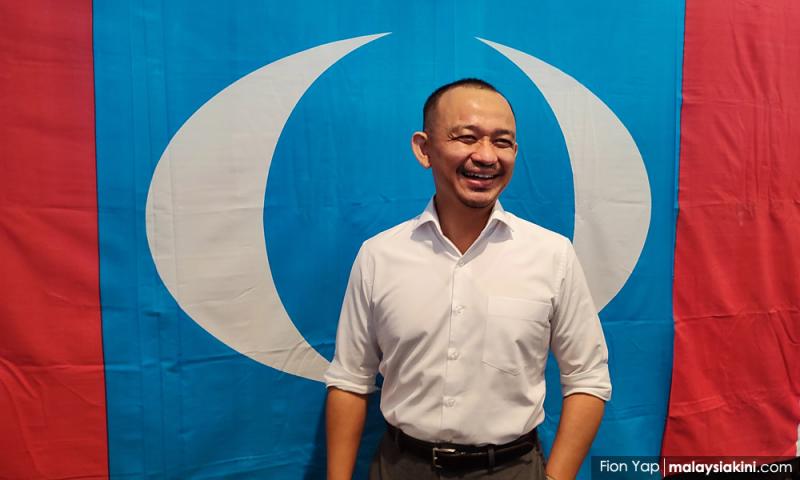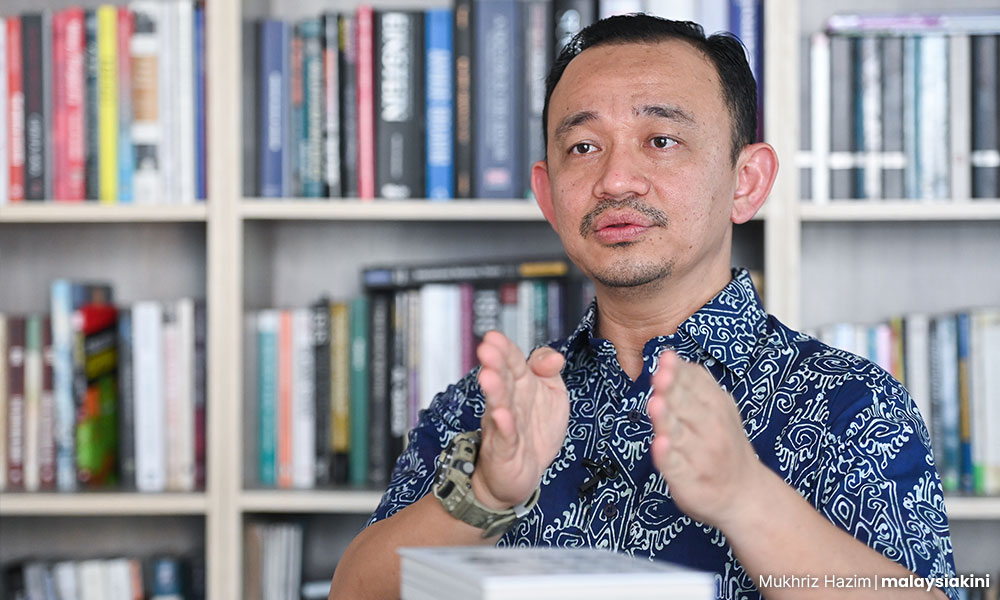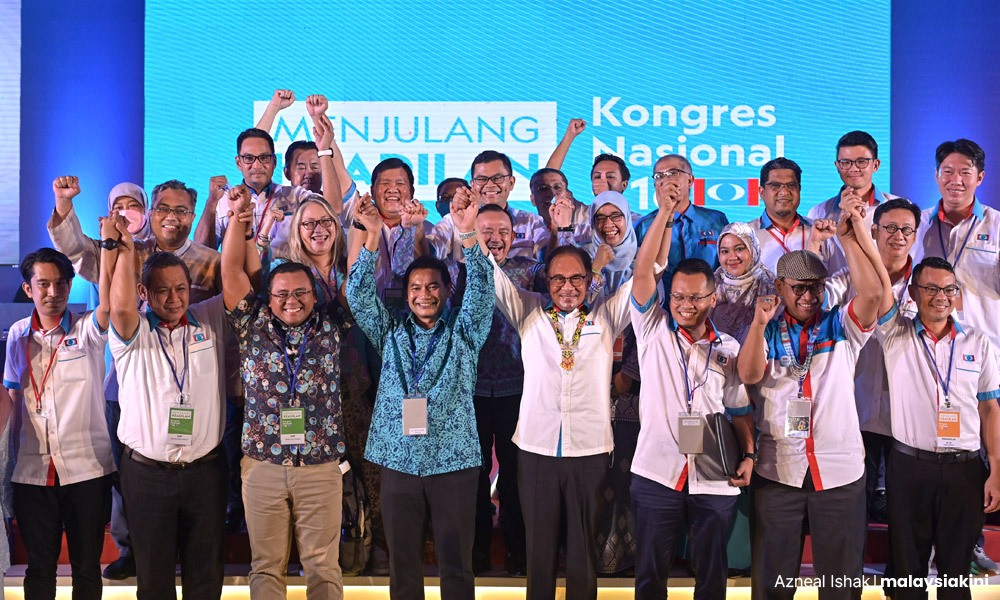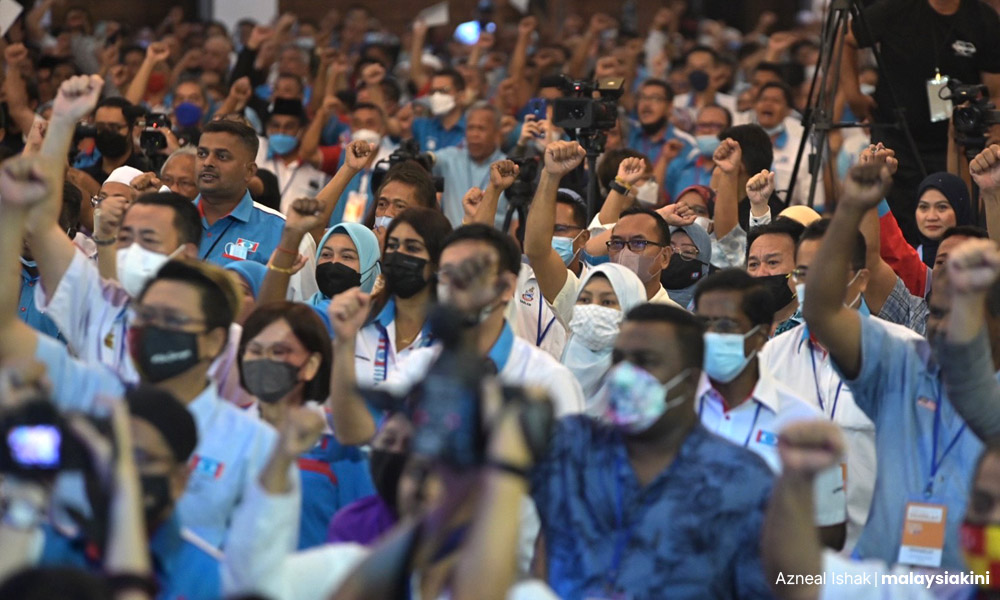
Maszlee on his rapid rise in PKR and multiculturalism
Maszlee Malik stunned a long list of party veterans by emerging top in the race for the PKR's central leadership council (MPP) during the party’s leadership election in May.
This was widely touted as an achievement because Maszlee was a greenhorn in PKR politics as he had been a member for just six months.
Moreover, Maszlee is not part of any established faction nor was he endorsed by any top party leader.
Maszlee polled 1,091 votes from the 2,265 party delegates, edging the outgoing PKR Youth chief Akmal Nasrullah Nasir by 135 votes.
For Maszlee, the PKR leadership election showed that its members are "mature" and are able to vote without a "cai" (voting guide) and evaluate even those without a faction.

"Honestly, I am still trying to understand the tune of the recent PKR election," Maszlee told Malaysiakini candidly during a recent interview.
"I saw that many of the candidates were very aggressive in their campaign. They have their own blocs and some even went to the extent of erecting banners and distributing their 'cai'.
"When I saw this, I already felt worried. The other candidates had done a terrific job in their preparation, while I was still someone new and inexperienced. But I told myself it's okay, just try to contribute and leave the rest to the delegates to decide.
"Then, an interesting thing happened. While many had been promoting this and that, the election results showed that party delegates did not vote according to any camp.
"Those elected (into the MPP) did not follow any 'cai' and the person who is the least 'cai' was me. I do not belong to any of the camps. So, I believe the PKR delegates had cast their vote maturely, where they put the 'agenda reformasi' before any group," he said.
People can see results
Maszlee was a former university lecturer who, as a Bersatu member, won the Simpang Renggam parliamentary seat on a Pakatan Harapan ticket in 2018.
However, when Bersatu left Harapan in 2020, Maszlee chose to continue backing Harapan, resulting in his expulsion from the party.

Maszlee believed that PKR members voted for him and the likes of Rafizi Ramli because they wanted to see a change from within.
"They evaluated whether these candidates were worthy of the rakyat's trust. They want these people to not only lead by the party but the country," he said.
Maszlee said the winds of change could also be felt among Harapan allies Amanah and DAP, which would help the coalition prepare better for the next general election.
"So I believe that these changes, coupled with the current national issues like the LCS scandal and Najib Abdul Razak's imprisonment, will give some sort of a boost to the rakyat to see that there is still light at the end of the tunnel."
Bersatu stint was awkward
Despite his relatively short time with PKR, Maszlee said he felt more at home with a multi-ethnic party while describing the bumiputera-centric nature of Bersatu to be "awkward".
"If you ask me to describe how I feel, what I can say is that I am more comfortable today being in PKR.
"When I go to meet the people, the voters at my constituency in Simpang Renggam, during my time with Bersatu, I could not invite everyone I meet to join my party because Bersatu is a party exclusively for the Malays," he said.

Maszlee said attempts to make Bersatu more inclusive in the past were often met by cynicism by the party leadership and grassroots.
For the forthcoming general election, Maszlee expressed cautious optimism that Simpang Renggam voters will retain him as their MP, despite Harapan's poor showing during the Johor state election in March.
Maszlee was fielded as the candidate for Layang-Layang - a State Legislative Assembly constituency within the Simpang Renggam parliamentary constituency - but he failed to unseat BN.
"The state election was not the case of Umno having regained its strength. If we are to look at the results, there was no significant increase in Umno's popularity.
"They only won the election because Harapan voters who voted for us in 2018 did not return to cast their ballot, including those who work in Singapore and in the Klang Valley.
"However, I believe the situation would be different, come to the general election, especially now with the country’s borders having been reopened, and the Covid-19 situation has improved a lot now.
"If the election is held at the right time, I believe there will be a different wave," Maszlee added.
No comments:
Post a Comment